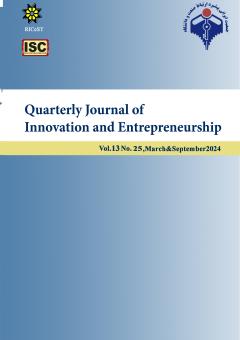Prioritizing Factors Affecting The Capacity of Tax revenues Arising From Intellectual Property Rights
Subject Areas : عمومى
mahdi Azmoodeh
1
![]() ,
arash hadizadeh
2
,
arash hadizadeh
2
![]() ,
amir Mohammadzadeh
3
,
amir Mohammadzadeh
3
![]()
1 - Ph.D. student, Department of Management, Islamic Azad University, Qazvin branch, Qazvin, Iran
2 - Assistant Professor, Department of Economics, Qazvin Branch, Islamic Azad University, Qazvin, Iran
3 - Associate Professor, Department of Financial Management, Qazvin Branch, Islamic Azad University, Qazvin, Iran
Keywords: Tax Revenues, Intellectual Property rights, Tax Administration,
Abstract :
In Iran, the subject of taxation on intellectual property (IP) has not yet been introduced by the government or the Tax Administration. However, due to the significant volume of these assets in the Iranian economy and their trade and transactions, taxation on them is an inevitable necessity. As a result, the issue of taxation on intellectual property rights is being extensively discussed in academic and professional circles. Intellectual creations and social credits, such as inventions and trademarks, although difficult to create, are easily imitated, reproduced, and distributed with industrial and mechanical means. Consequently, the financial and economic benefits of intellectual property are often enjoyed by imitators and duplicators. Without proper support for creators, they may be unwilling to share their knowledge and assets. Therefore, intellectual property rights are recognized in most countries
